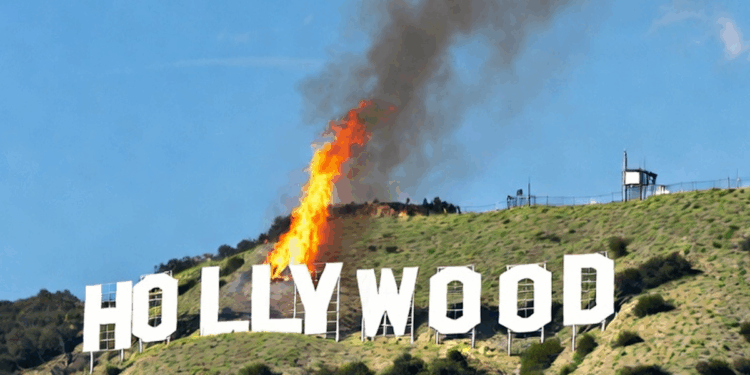The 2025 season of Hollywood movies is coming to a close. With only a handful of weeks left, this year has featured no real hits and no generational classics — so far (the hyped-up “Wicked: For Good” premieres this weekend). We are years past the COVID social distancing era, and the reality of slow ticket sales continuing is that movies simply aren’t captivating — at least those in physical theaters.
October alone had the worst box office numbers in 27 years. Furthermore, the expected summer hits were also misses. According to The New York Times, “The summer season — filled with fantasies and science-fiction sequels — was the least attended since 1981, after adjusting for inflation and excluding the COVID-19 pandemic years.”
The powers that be continue to blame potential patrons. Movie studies point out that they are making more than sequels and superhero movies, yet the dramas they are producing still aren’t drawing people in. They also blame theaters for raising prices and then front-loading films with ads. Finally, they blame critics for dismissing their movies too quickly and the media generally for not allowing audiences to hear about upcoming films.
What’s really at the heart of it, though, is that Hollywood’s bread-and-butter films — the ones that should be reliably drawing in audiences and making money — were all flops. The award-contending films are doing even worse. This isn’t a total shock, as even the Academy members don’t necessarily watch the films they so blithely vote for. This, however, is about to change — the Oscars have changed the rules for 2026, saying that members actually do have to watch (or at least claim to have watched) the films they are voting for.
What are some other reasons to place the blame on Hollywood?
The Content Just Isn’t What Audiences Want
Even the Hollywood Reporter acknowledges, “Many October titles simply didn’t resonate with general audiences.” Hollywood is increasingly becoming so insular that it has lost touch with its audiences. It can blame the patrons for not showing up all it wants, but people aren’t going to want to see a sequel to “Tron” in yet another attempt to cash in on the old franchise. We also don’t want a [communist rewrite]((https://patriotpost.us/podcasts/the-pop-culture-contrarian/episodes/popcon-89-snow-white) of “Snow White.”
Disney, by far, has suffered the three worst flops this year. “Snow White,” “Tron: Ares,” and “Thunderbolts” lost roughly $280 million.
Death of the Movie Star
Movie stars aren’t enough to bring people to the theater anymore. Part of that is because they have fallen into this grating pattern of lecturing the rest of us on politics and morality while living lives of amorality within their elite glitterati bubble. It was refreshing when actress Jennifer Lawrence of “Hunger Games” fame admitted, “As we’ve learned, election after election, celebrities do not make a difference whatsoever on who people vote for. So then what am I doing? I’m just sharing my opinion on something that’s going to add fuel to a fire that’s ripping the country apart.”
It’s an Expensive Hassle to Go to the Theater
For the average Joe, going to the movies is a luxury expense. Between just tickets and snacks, two people are easily looking at spending $50 or more. When you tack on the inconvenience of driving to the theater, having to endure half an hour of ads and trailers, sharing a public bathroom, and dealing with potentially rude fellow theater-goers, the experience often isn’t worth the price tag. This is especially true when you can eventually watch that film from the comfort of your own home via streaming.
Movies Made for Streaming Platforms Are Doing Better
“KPop Demon Hunters” is a perfect example of creative streaming platforms doing better than theaters. This Netflix movie was a surprise hit — in fact, it was the platform’s biggest movie ever. “Unlike Disney,” Business Insider notes, “Netflix doesn’t have nearly a century of celebrated IP to lean on. Instead of using nostalgia in reboots and live-action remakes, it has to build its franchises from the ground up.”
People Really Are Tired of Sequels or Live-Action Remakes of Classic Films
It’s safe to say that Disney was carrying the Hollywood industry. In the past, Disney could be counted on for multiple hits per year. This year, though, Disney can’t seem to win, and part of that is because it’s reheating classic franchise leftovers and expecting gourmet results. The live-action “Lilo & Stitch” was its one mildly successful movie this year, but “Elio” was a disappointing flop. Why? Well, it was originally supposed to be more LGBTQ coded, but the director changed course, and the executives — as they should — gutted the agenda from this made-for-children film. However, the result was a movie that was hard to follow.
Disney, though, has a few more remakes and sequels in the works. The trailer for the live-action remake of “Moana” was released earlier this week, and it looks like a shot-for-shot remake of the animated original. Pixar is making a fifth “Toy Story” film.
In Conclusion
What we’re seeing with Hollywood is the long-overdue collapse of the industry. If it’s unable to adapt, then filmmaking will go another, more economical direction. That direction is likely Artificial Intelligence. There is already an AI actress set to star in movies as soon as next year. This is a sad statement culturally. Hollywood has sacrificed art for complacency. Now, AI will have to fill in the gaps.

















